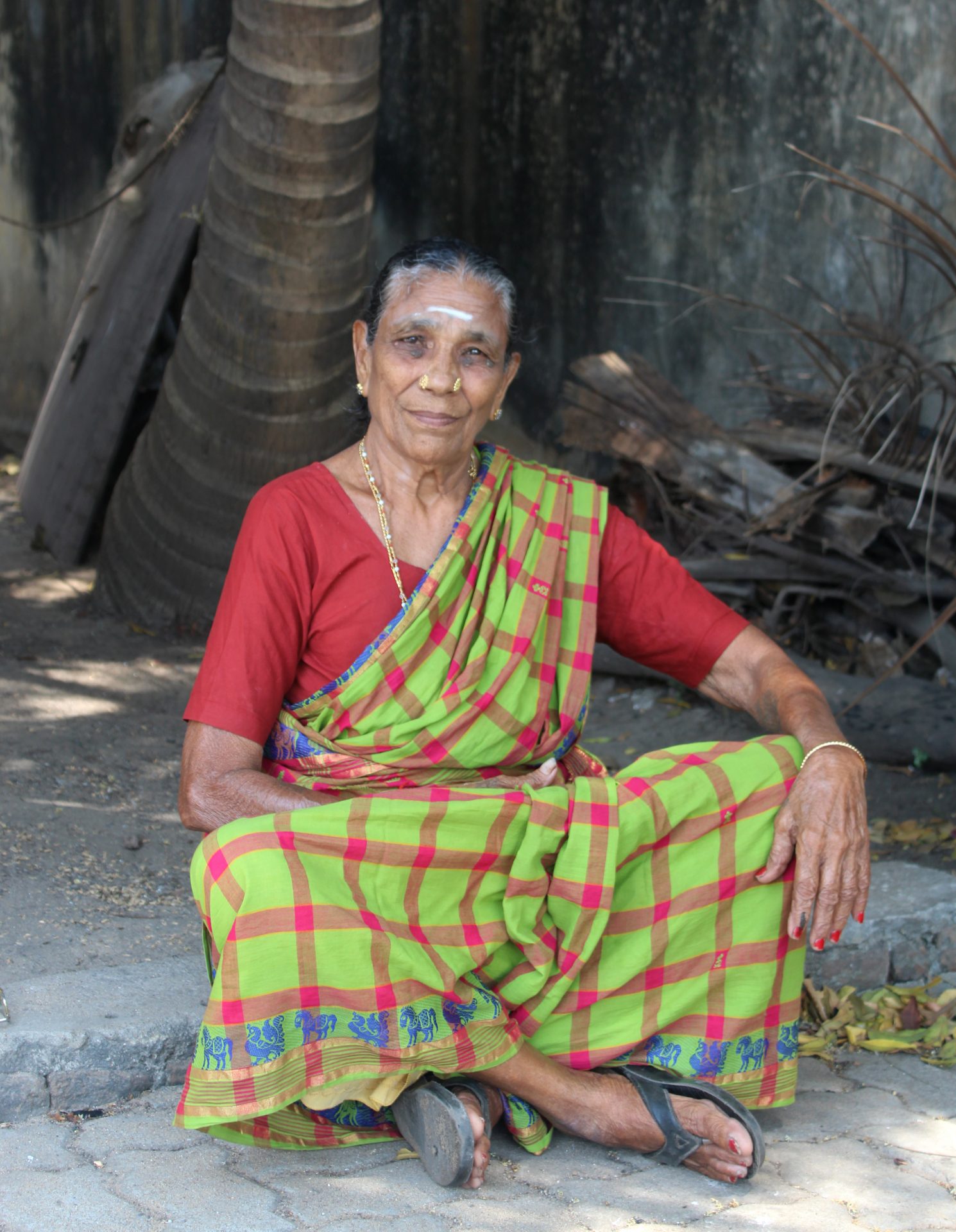For Bakkiyavathi from Pudukuppam, it has been a life spent selling fish. Unlike some women in her village, she cannot remain idle, even when there is a poor landing of fish. She walks to nearby hamlets to procure fish and then walks many kilometres to the central market in the town of Pondicherry. Not long ago, she would cross two estuaries on foot wading through waters to reach a point where she could find transportation to get to the market. Carrying three to four baskets of fish at a time, all by herself, wading through muddy estuaries, is unquestionably the most arduous of tasks. Two or three stopovers along the way lend brief moments of respite.
Fish work is seen to be a man’s job in the popular imagination. In fact, even artisanal male fish workers would consider their job done for the day when they hand over their catch to their women folk on whose shoulders fall the responsibility of selling the catch. While more male vendors on cycles and scooters have entered the profession as of late, women continue to be the main fish sellers. The woman’s job of sorting, pricing and selling fish at the doorsteps of consumers is the hardest of all fish work – and also the one that is the least valued.
Bakkiyavathi and other women fish vendors, on their journey to Pondicherry, would form a human chain, holding each other’s arms tightly, to safely cross the open mouth of the estuary, overcoming the strong tides. However, on rainy days, boats were their only hope to cross over. Rains meant other forms of trouble. With literally no roof to take refuge, they continued their marathon walk while the rain water would soak their fish, doubling their weight and drenching them with water that seeped through their porous baskets onto their bodies. To make things worse, the market was not equipped with washing facilities for women or safe and clean toilets.
Despite Bakkiyavathi’s efforts to reach the market, she did not have a ‘rightful’ place there to sell her fish due to constraints of space and cost. She would, therefore, sell her fish load to other women in the market who did have allocated space and then begin her long march back home after doing household shopping. ‘My work never stopped, even in times of pregnancy or illness, as my family of ten were dependent solely on my earnings’, recounts Bakkiayavathi.
Ethnographic documentation: Arunkumar P. and Bhagat Singh
